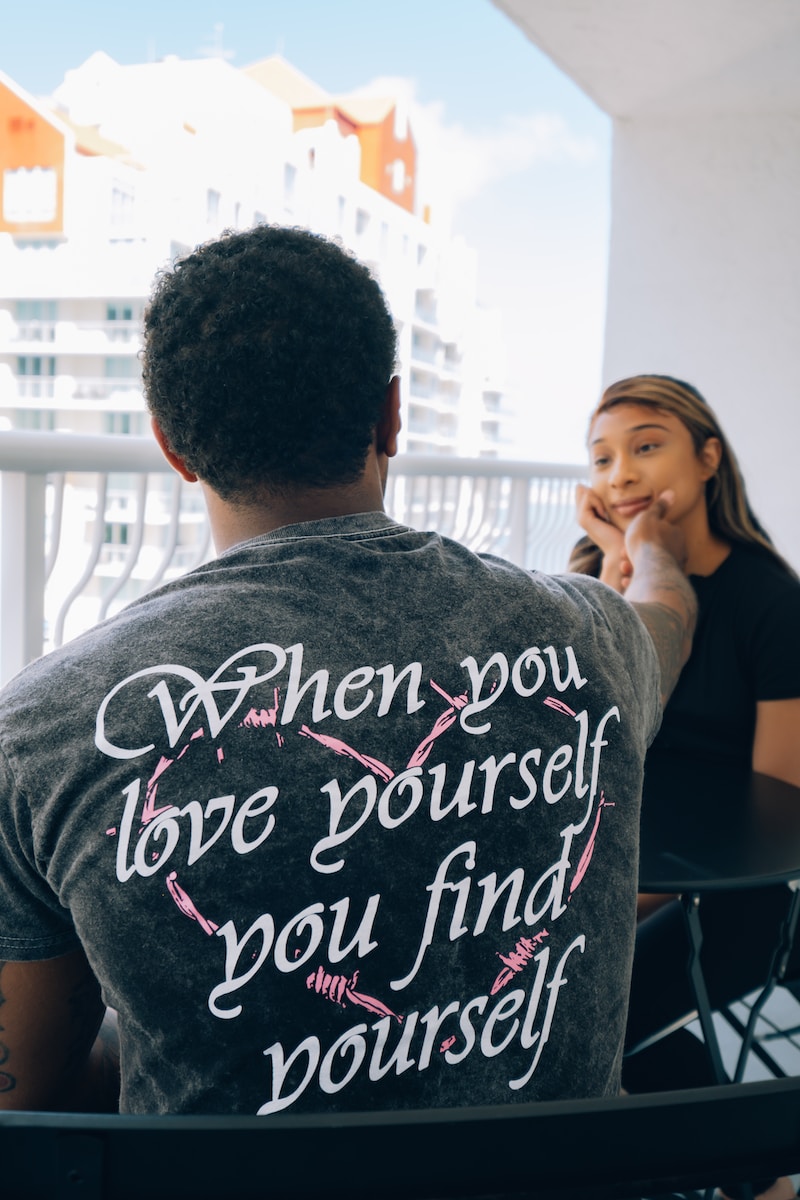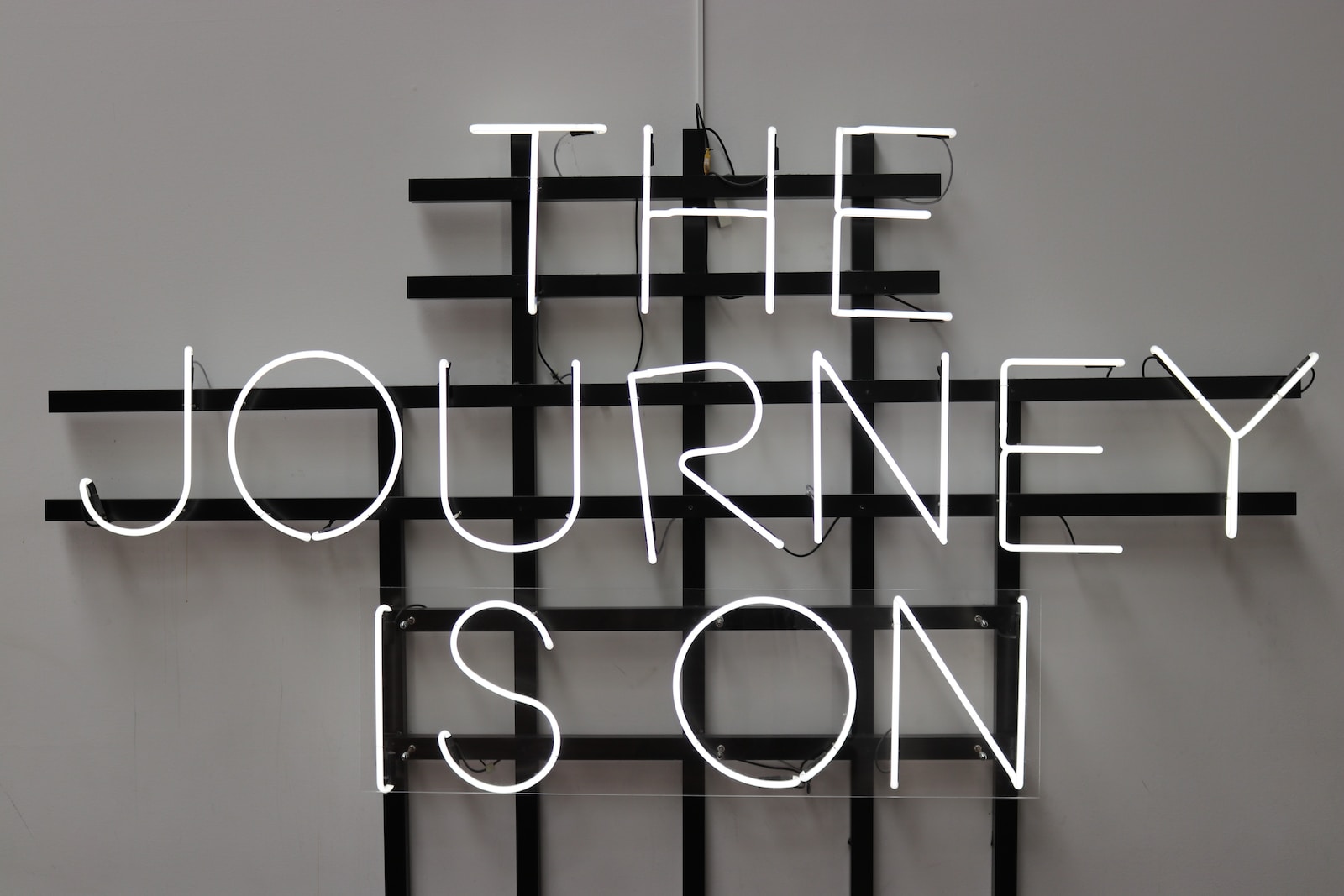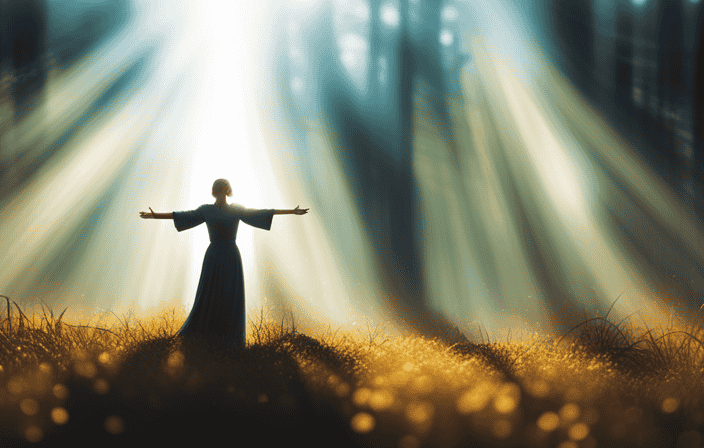Do you find yourself always looking for approval from others? If you answered yes, it might be a good idea to start discovering your true self. Seeking validation and approval from others can indicate a lack of self-confidence or understanding of your own uniqueness. Depending too heavily on other people’s opinions can lead us to neglect our own emotions and beliefs.
Comparing ourselves to those around us can also lead us down the wrong path when looking for outside approval. We may find ourselves in an endless loop of comparing our successes with other people’s accomplishments instead of focusing on our own individual goals. This kind of behavior could indicate that you don’t have enough faith in yourself and need constant reassurance from someone else.
At the end of the day, only you know who you truly are and what makes you special. It’s important to recognize when relying too heavily on the opinion of others isn’t doing any good for your self-worth and confidence level. Take some time for introspection and use this moment as an opportunity to learn about all the great things about yourself without needing recognition from anyone else. With this newfound knowledge, let’s move onto examining how comparison with others can affect our sense of worth…
Comparing Yourself To Others
Do you find yourself constantly comparing yourself with others? Do you use the successes of others to measure your own worth and value? If so, then it is likely that you need to learn who you really are. Self-comparison can be an incredibly damaging habit, as it often leads to feelings of inadequacy or insecurity.
Comparing yourself with others can make it difficult for you to appreciate your unique strengths and talents. It can also prevent you from recognizing what makes you special and different from other people. By focusing on how much better someone else is doing than you, instead of celebrating the differences between each person’s abilities, skills and achievements, self-comparison may lead to a feeling of being inadequate and unimportant in comparison with those around us.
Furthermore, when we compare ourselves with others too frequently, our focus shifts away from our own progress. We become more concerned about how fast our peers are improving rather than taking into account our own growth over time. This kind of comparison not only takes away any sense of achievement but also prevents us from enjoying the success that we do have—no matter how small they may seem compared to those around us.
By learning who we truly are, we can start to recognize that there is no right way or wrong way; everyone has their own unique path which holds its own beauty and purpose. Taking the time to discover what matters most to us will help us stop comparing ourselves with others and begin appreciating every single step along our journey toward finding out who we were meant to be all along. Difficulty making decisions can be one sign that this process has yet begun for many individuals who still feel stuck in cycles of comparisons based on external measures such as other people’s opinions or accomplishments.
Difficulty Making Decisions
Are you having trouble making decisions? Are difficult decisions causing a lot of stress and anxiety? If so, it may be time to take a step back and really think about who you are.
Making decisions can be an exhausting process for many people. Each decision requires careful consideration before taking action. It’s easy to become overwhelmed with the amount of information available when trying to make a decision or choose between options. This is known as “decision fatigue” and it can lead to difficulty in making even simple choices.
The best way to combat this kind of mental exhaustion is by learning more about yourself – your values, goals, hopes, dreams, strengths, weaknesses, etc. Once you understand what makes you unique and how that translates into decision-making processes, it will be easier to identify which choice is right for you without becoming overly fatigued. Taking the time to learn who you are will help give clarity during the decision-making process.
Learning more about yourself and developing inner awareness can also prevent making hasty decisions out of fear or panic due to not knowing which option is better suited for your needs. When faced with tough decisions, understanding who you are gives direction on where to go next…
Fear Of Failure
Fear of failure can be an incredibly crippling emotion. It’s something that so many people struggle with, yet it is a feeling that nobody wants to talk about or admit they are experiencing. We often feel like we need to stay strong and never show any weaknesses, even if our innermost feelings tell us otherwise. The truth is, fear of failure can keep us from living the life we truly desire – one where success naturally follows because you have faith in yourself and your abilities.
- You continuously compare yourself to others and get envious of their successes instead of celebrating them for their achievements.
- You constantly second-guess yourself when making decisions out of fear that you will make the wrong choice.
- You strive for perfectionism in everything you do due to anxiety around not succeeding at all costs.
The terror of failing at something keeps us stuck in place unable to move forward and grow as individuals into who we really want to become. This dread can manifest itself in various forms such as procrastination, self-doubt, or lack of confidence when taking on new challenges or opportunities. When this happens, it’s important to take a step back and recognize these fears for what they are: irrational blocks preventing us from achieving greatness despite our best efforts. To overcome this fear, start by challenging your own thoughts surrounding failure; remind yourself that mistakes are inevitable but learning how to successfully navigate those moments is key for personal growth and development over time. By understanding why this fear exists within ourselves and being open minded towards embracing failure rather than avoiding it altogether, we can slowly work towards becoming more comfortable with risk-taking on the path towards our desired destination in life..
To further explore difficulty expressing your feelings, let’s dive deeper into understanding how these emotions drive behavior both positively and negatively depending upon individual circumstances…
Difficulty Expressing Your Feelings
Do you have difficulty expressing your feelings, thoughts, needs, and desires? If so, this is one of the top 10 signs that you need to learn who you really are. There may be several reasons why it’s hard for you to express yourself. Perhaps you haven’t been comfortable enough with anyone to let them in on such vulnerable things. Maybe you don’t know how to express what’s inside or even if it makes sense to do so.
The truth is, we all have emotions and sometimes not being able to get those out can leave us feeling frustrated or overwhelmed. The best thing we can do when faced with a situation like this is take some time for ourselves and figure out how we want to communicate our feelings in an effective way. When done correctly, expressing our emotions can help us gain clarity and understanding about where we stand on certain matters.
It might involve talking through something with someone else or writing down our thoughts in a journal. Either way, taking action towards understanding ourselves better is key here. Doing so will also provide insight into how others perceive us as well as allow us to make connections between our past experiences and current situations without getting hung up on negative patterns from the past. To move forward confidently then, learning how to effectively express our true selves should become a priority – both inwardly and outwardly – if we wish to discover who we truly are at heart. Transitioning now into the next section…not being able to see your strengths and weaknesses can be another sign that it’s time for self-discovery!
Not Being Able To See Your Strengths And Weaknesses
Do you often find yourself questioning your decisions and feeling hopeless about the future? If so, it may be a sign that you need to learn who you really are. It is important to recognize your own strengths and weaknesses in order to make informed decisions for your life. Here are ten signs that you may need to do some self-reflection and gain more self-awareness:
- You have difficulty recognizing both your strengths and weaknesses. Do you feel like there’s something wrong with you or that you aren’t as good as others? This could indicate that it’s time for some self-appraisal.
- You constantly compare yourself to other people instead of focusing on what makes you unique. Comparing ourselves to those around us can lead to feelings of inadequacy if we don’t measure up. Instead, focus on how far you have come and all the progress made while learning who you truly are.
- You avoid situations where criticism might arise out of fear of failure or rejection. Fear of being judged by our peers can stop us from venturing outside our comfort zone which prevents us from growing personally and professionally.
- You rely too heavily on external validation rather than internal motivation when making decisions or setting goals for yourself. Seeking approval from others drains energy away from cultivating inner peace within ourselves; try not taking everything so seriously but still giving your best effort at all times!
- Your sense of identity is shaped by societal expectations instead of personal desires or beliefs . It can be difficult to break free from these norms but understanding what matters most to us will help guide our choices in life – even if they don’t always match up with what everyone else expects!
- You struggle with asserting yourself due to low self-confidence or lack of belief in your abilities . We all experience moments where we doubt whether we are capable enough – this is normal! Learning how to trust our intuition and set boundaries is important for guiding decision making processes without relying solely on external advice from others .
7 .You tend towards perfectionism in an attempt to prove worthiness , yet no matter how hard one tries results never seem satisfactory enough . Perfectionism serves as a distraction away from getting comfortable with imperfections ; accepting flaws helps create space for growth opportunities ! 8 . Feeling overwhelmed by stressors without any outlet leads one down a path void of clarity regarding their purpose and direction in life . Taking breaks throughout the day allows much needed relaxation periods , allowing insights into the bigger picture along with greater comprehension regarding ones true nature and capabilities ! 9 . Constantly seeking distractions instead of facing fears directly contributes towards avoiding moments which require deeper introspection into oneself resulting in missed chances at discovering hidden potentials ! 10 . Putting off activities which contribute towards gaining knowledge about oneself because “there isn’t enough time” strongly hints towards needing a change in perspective shifted towards prioritizing internal development over anything else ! Acknowledging these signs doesn’t mean there has been anything wrong done or said; oftentimes circumstances lead individuals astray leading them blindfolded through life until recognition hits regarding the importance of understanding oneself better first before expecting improvement externally comes into play! Avoidance of self-reflection does not provide answers nor lasting solutions; embarking upon such journey requires courage but yields lifetime rewards invaluable beyond comparison!
Avoidance Of Self-Reflection
Do you find yourself avoiding self-reflection or shying away from any kind of deeper introspection? If this is the case, it could be a sign that you need to learn who you truly are. When we’re not in touch with our true selves, we may feel uncomfortable when asked to reflect and examine ourselves. This discomfort can manifest as an avoidance of self-reflection – which can lead us further and further away from understanding who we really are.
If you recognize signs of self-reflection avoidance in your own behavior, take pause and think about why this might be. What feelings come up when you imagine delving into the depths of your being? It can often seem intimidating because deep down we know that learning more about ourselves will mean facing certain truths that may have been buried for a long period of time.
But going through this process is essential if we want to uncover what lies beneath the surface and understand our authentic selves better. The path towards discovering yourself requires courage but ultimately leads to inner peace and clarity on how best to live life authentically. Without taking steps to work through your fears around self-examination, however, these opportunities for growth remain hidden. Feeling unfulfilled in life is often a result of living without exploring one’s full potential within themselves first.
Feeling Unfulfilled In Life
Do you often feel unfulfilled in life? Are your day-to-day activities not providing the sense of purpose or satisfaction that you’re looking for? If so, it may be time to take a step back and start getting to know yourself better. Learning who you really are is essential if you want to make positive changes in your life and find true fulfillment.
Start by taking inventory of what’s important to you. What do you value most? What do you need from life in order to feel fulfilled? Once you have an idea of what matters most, use this information to set personal goals and create a plan for achieving them. This will help you stay focused on making progress towards your desired outcomes, rather than simply relying on external validation.
Be honest with yourself about your needs and desires – don’t try to please everyone else at the expense of fulfilling your own dreams. Take some time each day for self-reflection and journaling; these practices can allow for deeper exploration into who you are as a person, which is fundamental for finding lasting joy and satisfaction within yourself. By learning more about yourself, embracing your unique qualities, and setting meaningful goals in line with your values, you can ultimately unlock a world of possibilities while feeling confident that they’re right for YOU!
Relying On External Validation
As we discussed in the previous section, when you don’t have clarity about what you want in life and are feeling unfulfilled, it can often lead to relying on external validation. This is a dangerous path to take as it leads us away from our true selves and makes us dependent on others for approval.
The best way to recognize if this pattern of behavior has become part of your life and identify if you need to learn who you really are is by taking stock of how much time and energy you devote towards seeking out external validation. To help illustrate this idea, let’s look at the following table:
| Validation-Seeking | External Validation | Seeking Approval |
|---|---|---|
| Asking someone else’s opinion before making decisions | Looking for praise or recognition from other people | Constantly looking for reassurance that your choices are good ones |
| Relying on outside sources instead of trusting yourself | Needing acceptance from others before feeling secure | Worrying excessively about what other people think |
| Not being able to make decisions without consulting with friends first | Spending too much time worrying on how others perceive you | Feeling lost without constantly getting feedback from those around you |
By recognizing these behaviors, one can determine whether they have become overly reliant upon validation-seeking activities such as relying on external feedback, seeking approval, or becoming validation-dependent. These patterns indicate a lack of self-awareness and signify an urgent need to explore who we truly are so that we can properly navigate life’s journey with confidence.
When faced with difficult situations or personal challenges, instead of automatically turning outward for answers or depending on someone else’s opinion of ourselves, now is the time to look inwardly and discover which thoughts, feelings and values define us uniquely. Only then will our lives be filled with purpose and fulfillment; only then will we find our authentic identity!
Lack Of Clarity About What You Want In Life
If you feel lost, with no sense of direction or purpose in life, then it’s time to take a step back and learn who you really are. It can be difficult to gain clarity when there is so much confusion around us; but taking the time to discover your goals and understand your needs is essential if you want to find motivation and pursue what truly matters in life. Here are four ways to help uncover your true path:
- Take Time for Reflection – If we don’t pause and reflect on our lives, it can be hard to get an accurate picture of where we stand. Ask yourself questions like “What do I value most?” and “What gives me the greatest joy?” Taking stock of the present moment will provide valuable insight into what makes you happy.
- Seek Guidance from External Sources – There are loads of resources available that offer helpful advice and guidance. Talk with trusted friends/family members or look up inspirational quotes online. These external sources can often provide perspective that helps bring greater clarity about who you truly are.
- Look Within Yourself – Self-discovery requires being honest with ourselves about our strengths, weaknesses, hopes, dreams, desires, etc… Take some time out each day just for yourself–meditate or journal–to tap into those deeper thoughts within yourself that may have been neglected otherwise.
- Try Something New – When nothing else works (or even if it does), try something new! Trying something outside your comfort zone forces you to think differently which often leads to unexpected discoveries about yourself. This could mean anything from taking a dance class or volunteering somewhere new—the possibilities here are endless!
No matter how confusing things may seem at first glance, never forget that every single person has unique gifts waiting inside them for discovery—you simply need courage to unlock them. Don’t ignore what you truly need in order to be happy; instead use these tips as stepping stones towards gaining clarity about who you really are and what kind of life purpose resonates with you most deeply. With this newfound understanding comes immense power; power over your own destiny!
Ignoring What You Truly Need To Be Happy
Are you aware of what it takes to be truly happy? Do you spend time reflecting on the things that make your life meaningful and purposeful, or do you ignore the needs of yourself in favor of more superficial desires? If so, here are ten signs that may indicate it’s time for some self-reflection and self-awareness.
First, if you find yourself constantly comparing yourself to others and feeling inadequate as a result, this is an indication that there is something lacking within your own understanding of who you really are. When we focus too much on external comparisons and benchmarks, our sense of identity can become distorted. This can lead to feelings of inferiority and unhappiness.
Second, if you often feel like your life has no direction or meaning and cannot figure out how to create one for yourself, then it might be time to take some steps towards discovering who you really are inside. Taking stock of what makes us unique can help us better understand our passions, values, strengths, weaknesses, goals and dreams – all essential components for creating a fulfilling existence.
Thirdly, when we forget about ourselves due to excessive work commitments or other obligations such as family duties or social engagements, it’s easy to neglect what brings genuine satisfaction into our lives. Being honest with oneself about our own inner needs is crucial in order to achieve true happiness. It’s also important to be able to recognize when these needs have been ignored for too long – otherwise we risk becoming unfulfilled over time without realizing why.
In short, learning who we really are requires considerable effort but is well worth the journey once achieved. Discovering one’s innermost thoughts and emotions can provide valuable insight into what makes us happy; only then can individuals prioritize their personal wellbeing above all else without guilt or hesitation. Difficulty prioritizing personal well-being could be another sign that it’s time for some soul searching!
Difficulty Prioritizing Personal Well-Being
Do you often find yourself neglecting your own wellbeing and self-care? This is a sure sign that you need to learn more about who you truly are. When we don’t prioritize our mental and physical health, it’s easy for us to forget how important it is take care of ourselves.
Creating well-being habits such as exercising regularly, eating nutritious meals, getting enough restful sleep, and engaging in activities that bring joy can be immensely beneficial in finding balance in life. It also allows us to cultivate meaningful relationships with those around us since good health plays an essential role when interacting with others.
However, if these practices become too difficult or time consuming then exploring alternative approaches like mindfulness or meditation may provide just the reset needed to re-establish personal health. Being able to make wellness a priority helps build a strong foundation from which one can begin their journey of self-discovery. By making small changes each day towards betterment, individuals can eventually uncover new aspects of themselves that they never even knew existed. Moving forward on this path will lead naturally into areas such as struggling with low self-esteem and confidence…
Struggling With Low Self-Esteem And Confidence
John* was a man in his mid-thirties, who had been struggling with low self-esteem and confidence issues for many years. After going through some major life changes, he realized that it was time to make some adjustments and learn how to take better care of himself. But no matter what he did, his feelings of worthlessness kept coming back.
It can be difficult to prioritize personal well-being when we don’t think highly of ourselves, or feel like we have anything valuable to offer the world. This is why learning who you really are and questioning your identity and purpose can be so important on the road towards improving self-esteem and building confidence. Here are the top 10 signs that you need to start getting serious about doing this:
| Signs You Need To Learn Who You Are |
|---|
| 1. Feeling stuck in an unfulfilling job or career path |
| 2. Struggling with relationships because of low self-worth |
| 3. Constantly comparing yourself to others |
| 4. Always feeling anxious around people |
| 5. Experiencing high levels of stress due to lack of clarity on goals/direction |
| 6. Doubting yourself even when making positive progress in life |
| 7. Having difficulty recognizing your unique strengths & abilities |
| 8. Making decisions based on fear instead of faith in yourself/your intuition |
| 9. Putting other peoples’ needs before your own out of guilt or obligation |
| 10 Being unable to recognize and express gratitude for things in life normally taken for granted (eg health, family) |
It’s easy to get caught up in negative thoughts and beliefs about ourselves that prevent us from achieving our full potential – but these signs should remind you that it doesn’t have to stay this way forever! Taking steps towards understanding who you truly are is essential if you want reclaiming control over your life and overcoming any challenges related to low self-esteem or poor confidence levels . With hard work, dedication, and commitment, there’s nothing stopping anyone from living their best life possible!
Questioning Your Identity And Purpose
Do you feel like you are stuck and confused about who you really are? Are your thoughts filled with questions around purpose, identity and direction? If so, it’s time to start exploring what matters most to you. Discovering yourself can be a daunting process but it is necessary for finding out how best to live life in alignment with your values.
Take some time to evaluate the areas of your life that matter most – relationships, career, health & well-being etc. Consider if these reflect who you truly want to be or whether they have been influenced by family expectations or societal norms. Once you know these core elements of your true self then take action towards living them out each day.
It may not always be easy to stay on track when questioning your identity and purpose but don’t give up! You can use mindfulness practices such as journaling and meditation to keep connected with yourself and find clarity amidst all the confusion. By doing this regularly, understanding yourself better will become easier over time. Learning who you are will help set a clear path forward as you make decisions that bring meaning into every stage of life…
Becoming Easily Discouraged And Overwhelmed
Do you often feel discouraged or overwhelmed when approaching tasks? Does it take a great amount of effort to motivate yourself, and even then do you lack focus or direction? If so, this could be an indication that you need to learn who you really are.
When we don’t know our true self-worth or purpose in life, it can be difficult to make decisions that lead us down the right path. We may lack motivation because it feels too hard to move forward without knowing what is truly important to us. This can leave us feeling stuck and unable to get going on anything meaningful.
The good news is that recognizing these signs is a huge step towards learning your own identity! By looking inward and discovering more about yourself, you can gain clarity on how best to use your strengths and gifts for greater meaning and fulfillment. Once you understand who you really are at your core, tackling challenging tasks will no longer seem daunting – instead they will become opportunities for growth.
Take some time today to reflect on where you want to go in life and why. Consider jotting down any insights that come up during this process; writing things out can help bring fresh new perspectives into light! In doing so, not only will you uncover your unique potential but also start living a life that feels authentic and aligned with the real “you”.
Frequently Asked Questions
What Resources Can I Use To Learn Who I Really Am?
Are you feeling lost, searching for who you are and what your purpose is? If so, it’s time to start the journey of self-discovery. Learning who you truly are can be a rewarding experience that leads to personal growth and increased happiness. Here are some resources available to help you on this path:
- Self-Reflection: Taking the time to reflect upon yourself allows for deep insight into your values, beliefs, motivations, goals, and dreams. It also helps in recognizing patterns or behaviors which may need adjusting. This could include journaling, meditating, seeking out therapy or coaching services, taking personality tests, etc.
Sublist 1 – Writing Exercises:
•Free writing without an end goal in sight
•Journaling daily thoughts and feelings
Sublist 2 – Reflection Tools:
•Personality quizzes & assessments
•One-on-one conversations with people close to you
- Self-Improvement: Once you have identified areas where change might be beneficial take action towards improvement! From reading books related to personal development topics like communication skills or relationship building; participating in seminars/classes tailored around professional development or wellness practices; or engaging in activities such as yoga or mindfulness meditation – there are countless ways to work on self-improvement. The important thing is finding what works best for you and making sure it aligns with your core values!
Taking control of your life by getting clear about who you really are is a powerful step forward. With dedication and effort, we can all uncover our true potential through self-discovery and create positive changes within ourselves that will lead us towards greater success and fulfillment in life. So why wait? Start learning more about yourself today!
How Can I Stop Comparing Myself To Others?
Comparing ourselves to others can be a temptation that’s hard to resist. It’s easy for us to get caught up in worrying about how we measure up against our peers and what they have achieved, leading us further away from seeing and understanding who we really are. But it doesn’t have to be this way! Learning how to stop comparing yourself with others is an essential part of accepting your true self and finding inner peace.
It’s important to remember that everyone has their own unique path; while someone else may seem more successful or attractive than you, these comparisons only serve as a roadblock on your journey towards self-discovery. Working towards improving your self-esteem by recognizing the strengths within yourself will help you focus on moving forwards instead of getting stuck looking back at other people. Taking time out to practice mindfulness techniques such as meditation can also help strengthen your sense of self-confidence, allowing you to reflect on who you are without judgement or comparison.
Having the courage to accept both good and bad aspects of yourself can take some real effort but is worth the reward when it comes to living an authentic life based upon your individual values and beliefs rather than trying to fit into society’s standards. Finding ways to challenge negative thoughts surrounding comparisons will give you the clarity needed in order for you make decisions that feel right for YOU without being influenced by outside sources. Investing in relationships which support positive feelings around self-acceptance will also provide invaluable guidance through moments of difficulty so that you don’t succumb again into comparing yourself with others unnecessarily.
By taking proactive steps like these, you’ll soon find that there are healthier alternatives available other than feeling down due to constant comparison – ones that lead onto meaningful paths full of potential opportunities just waiting for you discover them!
How Can I Learn To Make Decisions Confidently?
Making decisions confidently can be a challenge if you don’t trust yourself and your own opinions. You may feel like you need to rely on the input of others or that fear is holding you back from feeling secure in your choices. Learning how to make confident decisions starts with understanding what it takes for self-trust and having faith in your decision-making process.
The first step to making confident decisions is learning to trust your own opinion. This means getting comfortable with considering other perspectives, but ultimately relying on your gut instinct when deciding something important. It’s also essential to let go of any fears that are influencing your choice; this could mean anything from worrying about the outcome, being afraid of failure, or even comparing yourself to someone else who has made different choices. Once you can successfully release these worries, then you will be able to focus more clearly on what matters most – trusting yourself and following through with what feels right for you.
Another key element to building confidence in decision-making is embracing uncertainty as part of the process. There is no guarantee that every choice we make will end up working out perfectly, however having faith in ourselves allows us to move forward despite not knowing exactly where our decisions might lead us. When we become aware of our own strengths and abilities, then we can start making inspired and meaningful choices without fear taking over.
Building self-trust plays an integral role in helping us make confident decisions because it allows us to take action based on our own inner wisdom rather than outside influences or expectations. As long as we remain focused on our values and goals while staying true to ourselves along the way, then we can create lasting changes by trusting and acting upon our own opinions – no matter how uncertain they may seem at first!
How Can I Overcome My Fear Of Failure?
Do you feel like fear is stopping you from taking risks and achieving your goals? If this sounds familiar, it’s time to take control of your life and learn how to overcome the fear of failure. It’s not easy, but conquering that fear can open up a world of possibilities.
The key to overcoming any kind of fear lies in understanding why it exists in the first place. Fear of failure comes down to our own vulnerability when facing potential mistakes or rejection – we’re uncomfortable with being out of our comfort zone and so we shy away from risk-taking. To break through this barrier and move past it, start by recognizing what triggers your fear of failure. Is it lack of self-confidence, feeling unprepared or simply an irrational belief that if something goes wrong, your entire life will be ruined? Once you identify where these fears are coming from, you can work on replacing them with more positive thoughts about yourself.
It may also help to reframe how you look at mistakes: instead of seeing them as failures, try viewing them as learning experiences. This shift in perspective allows us to see “failures” as opportunities for growth rather than roadblocks which contribute towards feelings of shame and insecurity. Additionally, remind yourself that making mistakes isn’t a sign of weakness; successful people often make many before reaching their goal! Lastly, focus on building resilience by setting achievable goals for yourself and celebrating wins no matter how small they might be – use those moments to fuel motivation and keep going even when things get tough.
By keeping these tips in mind and proactively working on conquering your fear of failure through mindfulness exercises or seeking professional advice if necessary, you’ll find yourself empowered to take risks confidently without worrying about the outcome too much. Achieving success then becomes less daunting because now there’s nothing holding you back!
How Can I Improve My Communication Skills?
Improving your communication skills is key to achieving success in life. Whether you are looking for better interpersonal relationships, more effective communication strategies at work or just want to be able to express yourself in a clear and meaningful way, honing your communication style can make an enormous difference.
As with anything worth pursuing in life, the best place to start when it comes to improving your communication skills is within yourself. Begin by reflecting on how you currently communicate – do you tend towards speaking quickly and not allowing others the time they need? Do you find yourself saying ‘yes’ too often without considering whether it’s the right thing for you? Taking stock of what works well and where there is room for improvement will help you identify areas which could use some attention.
Once you have identified what needs work, decide how best to move forward. This might involve seeking out information from books or websites about effective communication techniques, finding someone who can provide guidance such as a coach or mentor, enrolling in workshops or classes that focus on developing new habits related to communicating effectively or simply taking more time when engaging in conversations so that everyone involved feels heard and respected. Implementing changes incrementally over time can also allow these positive behaviours become second nature to you, enabling successful and enjoyable communications going forward.
Regardless of how exactly take action, remember that improving your ability to communicate requires commitment and dedication but it does bring rewards; greater clarity when expressing ideas along with increased confidence in other people’s understanding of them. So why not get started today?
Conclusion
Learning who you really are is not only possible but also essential in living a life of fulfillment and purpose. You may feel overwhelmed with the prospect, or even scared to take the plunge into self-discovery. But it’s important to remember that everyone has their own unique journey and there isn’t any one right way to learn about yourself.
The trick is to start small; instead of trying to tackle all 10 signs at once, pick one sign as your starting point. Then use resources like books, podcasts and online courses that can help guide you along the path. And don’t forget to ask for help from trusted friends and family when needed! As long as you put in some effort, you will slowly gain clarity on who you are and what makes you tick.
You may be tempted to compare yourself with others while learning more about yourself, but this won’t get you very far. Everyone is unique and so too is their journey of self-discovery – focus on staying true to your own values rather than striving for perfection or success according to someone else’s standards. With patience, practice and dedication, ultimately you will uncover the answers within yourself which will lead towards greater happiness, confidence and fulfilment in life.










